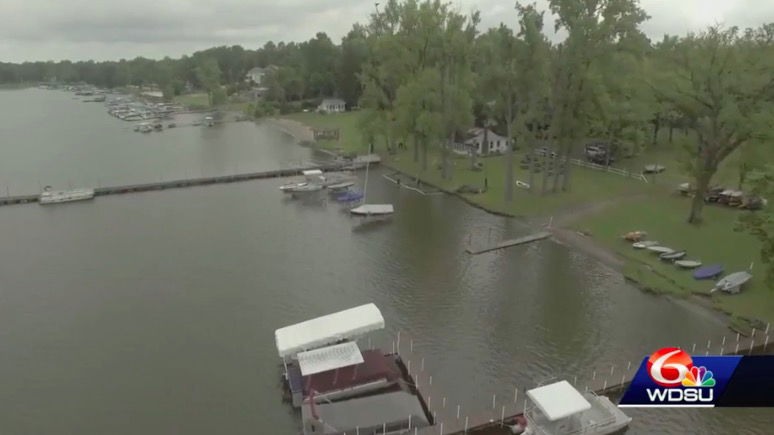LSU University Lakes rank top 10 for the most toxic algal blooms

The University Lakes
By Lee Southwick
Click here for updates on this story
BATON ROUGE, Louisiana (WDSU) — The University Lakes, a chain of six lakes near the Louisiana State University campus, have some of the most toxic algal blooms in the world.
A study by water scientists at BlueGreen Water Technologies ranked the LSU lakes as number 10 on a list of the worst toxic blooms in 2022.
Hundreds of people walk by the lakes every summer as green slime rots in the sun.
“When there is a cyanobacteria bloom, it is very unsafe,” said Lucia Ross, the chief marketing officer for BlueGreen Water Technologies. “And it’s not only unsafe to be in the water, but around the water, because it is airborne.”
Ross said the bacteria is airborne when you can smell the stench of rotting green slime. Breathing it in can affect your lungs, throat and eyes, and getting into the water itself can cause a rash.
“Animals and small children have died from being in contact,” said Ross.
The blooms have been caused by an overload of nutrients in the water. Fertilizer and other runoff from the homes and the grass around the lakes contribute.
A major restoration and dredging project is in the works to help prevent such large and toxic blooms.
“When you’re dredging, you’re stirring up the nutrients on the lakebed, so it’s likely going to get worse before it gets better,” said Ross.
Closer to home, satellite imagery is showing some cyanobacteria in Lake Pontchartrain already this year.
We can help prevent harmful blooms in our lakes by keeping fertilizer out of the water, having a water management company test the water regularly, and starting water remediation projects early.
If you do come in contact with a lake experiencing an algal bloom, do not let the water touch your skin. If you do get in on your skin, make sure to wash your hands with clean soap and water. Do not let children play in or drink any of the water. If your pets get in the lake, wash them off with clean water, and if they’ve ingested any, take them to the vet.
Please note: This content carries a strict local market embargo. If you share the same market as the contributor of this article, you may not use it on any platform.